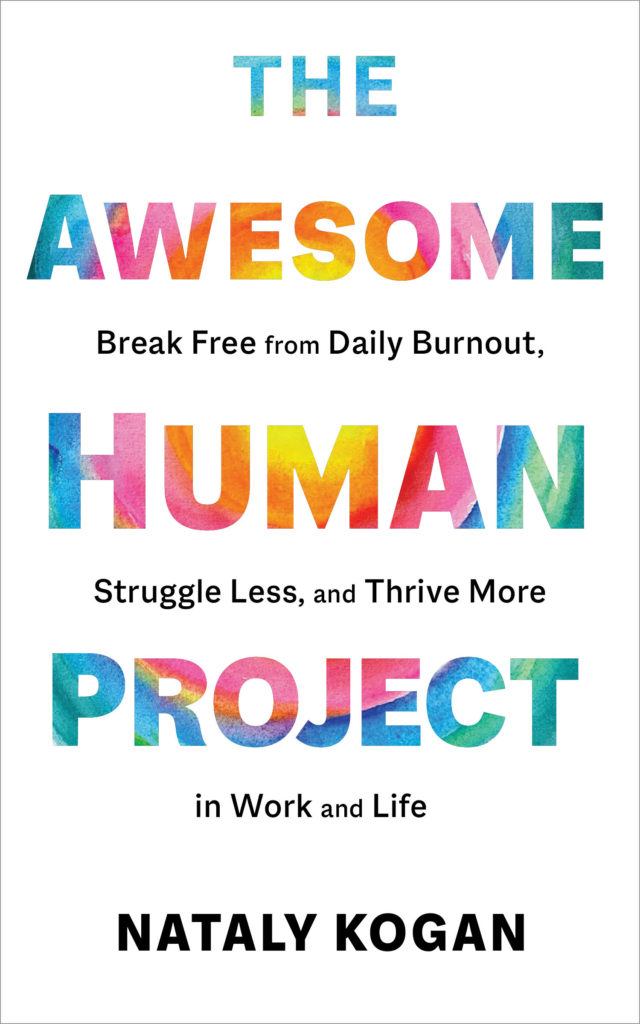What do you think of when you hear the word self-care? I’ll tell you what I used to think: self-care was that thing other people did because they weren’t strong enough to just power through, like me, or because they’d done enough to earn it, which I absolutely had not. Mostly, I thought of self-
care as going to a spa and getting massages, and those just felt like indulgences I couldn’t allow myself to enjoy because how could I spend time and money on myself when I had work and family to take care of? I felt way too guilty to do that.
Unfortunately, my old view of self-care isn’t unique—so many people I’ve worked with are trapped by it. So let’s start by getting rid of any ideas you might have around self-care being a luxury, an indulgence, or a reward you need to earn or deserve somehow by doing enough, working enough, or struggling enough.
It has nothing to do with any of that. Self-care is the skill of fueling your emotional, mental
and physical energy. Your energy is your fuel. Would you expect a car to be able to run without fuel? No. The car doesn’t either “deserve” fuel or not. It needs fuel to function. It can’t do its job of being a car without fuel. Same is true for us Awesome Humans: We can’t function without energy. We can’t do all the things we need and want to do and do them well and for a long time without having enough emotional, mental and physical energy. We can’t do our job of being human without fuel. And self-care is the skill of making sure we have enough of it. Does that sound like an indulgence?
You start each day with a limited reservoir of emotional, mental, and physical energy. All the things you do throughout the day require your energy, so they deplete your reservoir. Some of these things are external, like work tasks, conversations with people, and home responsibilities; some of them are internal, like your thoughts and self-talk.
When you practice Self-Care, you intentionally do things to fill your energy reservoir and limit doing things that unnecessarily drain it. This second part is so important, but it doesn’t get nearly enough oomph when we talk about self-care.
You Can’t Fill a Leaky Reservoir
Think of it this way: your best efforts to fuel your energy won’t get you very far if there are too many leaks in your reservoir. Of course, you can’t stop working or taking care of your responsibilities. I’m not suggesting that at all. But there are plenty of things that drain your energy that you could do less or a little bit less. Here are a few energy drains I’m willing to bet you could reduce:
- Multitasking
- Mindlessly scrolling social media
- Overconsuming news
- Talking negatively to and about yourself
- Trying to do things perfectly
- Making tons of decisions (and trying to make each one perfectly)
Making tons of decisions throughout the day was perpetually one of my big energy drainers. I wasted so much energy being a control freak and thought that every decision needed two things:
- Me
- My agonizing over it
I suffered from decision fatigue, although, boy, did I resist acknowledging this! Decision fatigue is a big energy drain for many people because every single decision you make requires your energy, from what you’re going to wear today, to what task to work on next, to what to make for dinner, to what show
to watch, and on and on and on.
Steve Jobs wore a daily uniform of jeans and a black turtleneck because he didn’t want to waste energy choosing a different outfit every day. Picking out what to wear isn’t a decision I want to give up—it’s fun for me!—but burning out did force me to get more intentional and disciplined about prioritizing decisions and recognizing when a decision is not important enough for me to care about it.
Learning How to Manage Your Energy Reservoir
Your main challenge this week is to become more aware of your emotional, mental, and physical energy levels and commit to a consistent, daily Self-Care practice that fuels your reservoir and reduces unnecessary drains.
I recently wrote about the energy reservoir in my weekly Happier email, and a woman wrote back saying it made her realize that she only practiced self-care after she crashed and burned from endless overworking.
Wow, that hit home. For most of my life, my “practice” of self-care involved getting so exhausted that I couldn’t run through my day at the same frantic pace and I had to get a few more hours of sleep or zone out on the couch in the evening for a few hours of watching TV. I never paused to check on my energy levels during the day, so it was only when I felt completely burned out that I slowed down. Eventually, as I’ve shared with you, my daily burnout snowballed into one huge, life-pausing, scary burnout. I couldn’t function anymore—I had not a single drop of energy left.
When the car runs out of gas, it stops. When you run out of energy, you stop. I meet so many people who live right on the edge of burnout, running on nearly empty energy reserves. I lived that way for so long that I can sense it in other people without them saying anything. You know that you can’t keep going like this, but you don’t know how and what to change. It feels like a trap.
But running on almost empty doesn’t just feel terrible—it also prevents you from being good at the things you care about. You can’t be great at your job if you’re exhausted and depleted, just as you can’t be a great parent or friend. My car fuel tank comparison turns out to be a good one: in most cars, when the fuel tank is less than one-quarter full, the fuel pump has to strain more, and the car becomes less fuel efficient. (This is almost the entirety of my car knowledge, so please don’t expect much more.) If you’re always running on an almost-empty energy reservoir, you have to strain more doing any task, which takes even more of your energy, creating a destructive cycle.
Think about the simplest example, like writing an email to your colleague. When you’re exhausted, it’s harder to focus, it takes you more time, and you can’t express yourself as well as when you feel fueled. A ton of research shows how depleted emotional, mental, or physical energy negatively affects our ability to think clearly, make good decisions, and solve problems.
This brings me to another reason to make self-care a regular daily practice rather than holding off until you “really need it.” And I gotta tell you, the efficiency lover in me is really excited to share this with you:
When you practice self-care consistently and keep your energy reservoir fueled most of the time, your self-care practice takes less time. Think about filling up your car: when your tank is empty, it takes longer to fill it up than when there’s some gas already in it. When your energy reservoir is empty, it takes more time and effort to fill it up. It took me several years to heal from my burnout, and I had to put much of my life on pause while I did it. Several. Years.
But if you top off your energy reservoir daily, it takes less time and effort each time, which means it’s easier to fit into your busy schedule. It’s an awesome, constructive cycle: when you practice regularly, you need less time for your practice, so you’re more likely to do it even when you have a ton going on! Sure, sometimes you can’t help it, and you’ve got to go all out. You’ve got a huge project at work, a loved one needs your care, the basement floods… or all three at the same time. (I am speaking from experience here.) When that happens, your energy reservoir can get close to empty. But if you’ve been practicing self-care consistently, you’ll know how to refuel quickly.
How to Practice Self-Care
Look at yourself through the lens of self-Care by becoming aware of your emotional, mental, and physical energy reservoir levels daily and then doing more of what fuels your energy and less of what drains it unnecessarily.
Start with doing this practice once a day—in the morning, midday or evening. Put a reminder on your calendar so you don’t forget to do it. As you get the hang of it, begin to practice it throughout the day.
Here are three questions to ask yourself:
1. How is my emotional, mental and physical energy reservoir right now?

Be specific: you might be emotionally drained but physically fueled or the other way around. As with emotional awareness, whatever comes up is the right answer. Don’t judge yourself (less “I shouldn’t feel so tired!” and more “I feel physically tired!”).
2: What has been unnecessarily draining my energy today, and can I do it less?
Again, get specific. “Work” is not a good answer—it’s too general, and you can’t learn anything from it that will help you. Is there something specific about work that has been draining that you could reduce? For example, are you stuck on a task and asking someone for help might do the trick? If you notice that you’re emotionally or mentally drained, take a moment to practice struggle awareness and the lens of acceptance to help shift your thoughts so they drain less energy.
3: What can I do to fill my energy reservoir today?
Small things count: a five-minute walk outside can do a lot for your energy (we’ll talk about this more in a bit). More specific = better. “Relax” is meh. “Sit down and read for a half hour with my favorite cup of tea after dinner” is better.
Excerpted from The Awesome Human Project: Break Free from Daily Burnout, Struggle Less, and Thrive More in Work and Life by Nataly Kogan, published on Feb. 8, 2022 by Sounds True. Copyright © 2022 by Nataly Kogan. Photo by @DimaBerlin/Twenty20




